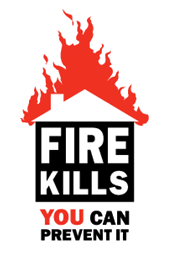l
Fire Safety PSAs
Fire safety PSAs, as you can imagine, can be some of the most horrific of PSAs. My own personal most traumatic PSA was one on fire safety - Don't Drown In Toxic Smoke.

Fire Kills is the UK Government fire safety campaign, started in 1988, under which most fire safety PSAs and PIFs are made. The aim of the campaign was initially to push for all households to install fire alarms; it has since evolved to remind people about fire alarm maintenance, and educate people on fire hazards in the home. According to government estimates, the number of accidental fire deaths in homes across England has halved since the start of the campaign. While the campaign seems to have ended briefly after 2018, it has since been revived, and 2023 has seen the campaign return in force across TV, radio, and internet.
Click here to see an archive of the Fire Kills website.
Click here to see the Fire Kills YouTube channel.
Don't Drown In Toxic Smoke
This advert traumatised me, and I truly think it's a piece of defining horror in my childhood. Starting off with an eerie house underwater, the voiceover describes how only two breaths of smoke from a house fire can render you unconscious - and therefore helpless, left to burn alive, without ever waking up. It's intended to encourage you to check your smoke alarms, to wake you in the case of a fire. Ironically, rather than encouraging fire safety, it actually lead to me creating a hazard that could prevent my escape in a fire. The idea of dying without ever being aware of it, going to sleep and being left unable to wake up due to smoke inhalation, scared me so much as a child that I blocked up my bedroom doorframe with towels every night. Still, it's a very effective ad for getting its message across, and has stuck with me for a decade so far - my heart still races even seeing the first frame.
On Your Child's Life
In this advert, a child calls on the viewers to swear on their child's lie that they will test their smoke alarms every clock change day, to give their family the best chance of surviving a house fire. The burnt-out house around him is enough to catch your feelings, and the way he looks up and asks "you did promise, didn't you?" with big sad eyes does make you feel a little guilty for not repeating his promise. There's some heartbreaking horror when his face shifts to be pale, with soot staining his face, warning about not being able to turn back time before vanishing into the wall, a ghostly apparition. Not necessarily the scariest PSA, but it does sit with you.
Nightvision, 2002
There are a few versions of this PSA - this version, with all three scenarios combined, and then a few variations with each scenario separated. The first two scenarios are really the scariest parts of this PSA. In the first, two children huddle in a room calling for their father and crying - text tells us to make sure everyone knows what to do in the evet of a fire. The final image of the scene, zoomed out to show the children holding onto each other, small and alone in the frame as smoke swirls around them, is really chilling to me. In the second, a woman struggles to unlock her front door, banging and screaming for help. Again, the final image, the door still securely shut as you hear the muffled banging, a vague impression of her silhouette, but no realoutwards indication of what is happening, gives you a little shiver as you wonder if you would notice asyou walked by - and what you could even do to help. The last scenario kind of falls flat though; did the guy just K.O. himself tripping over a bike? C'mon man, just get up. Still, for the most part, a pretty good, scary PSA.
Smoke Alarm, 1998
This PSA is more heartbreaking than necessarily frightening - but I maintain that there's a certain kind of horror in tragedy. A VHS home video recording is shown of a little girl opening a toy and thanking her mother, repeating over and over until the camera focuses on the grieving mother, crying as she watches the same small clip over and over. The father comes over to turn off the video, and holds the mother as she collapses, weeping, into his arms. A lot of PSAs play on the parental fear of losing a child to a fire to get their messages across, but this is one of the more subtle PSAs to use this technique.
r